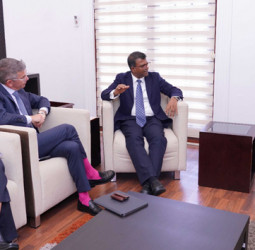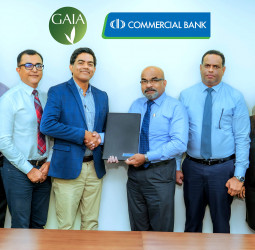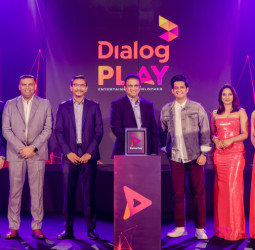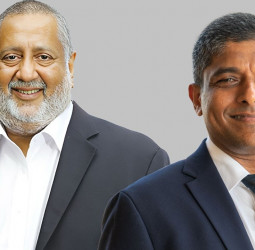Q: Neil, New Anthoney’s has been in the spotlight for challenging the industry. What exactly gives you the confidence to make these bold claims?
Neil Suraweera: Because we’ve proven it. We were the first poultry processor in Sri Lanka to obtain FSSC 22000 certification for our processing and further processing operations. At that time, no one else had stepped up to this level of global food safety assurance. While others have since followed, we take pride in having set the precedent. It wasn’t about being the only one; it was about proving that Sri Lankan poultry could meet the highest international benchmarks. That first step made it harder for the industry to ignore global standards.
Beyond that, our operations are ISO 14064-1 certified for carbon footprint management. Our HarithaHari chicken is independently lab-tested in a leading University equipped with the latest testing equipment, to be 100pct antibiotic-free. These are not marketing slogans; they’re validations from science and independent authorities. When you’re backed by audits and certification at this level, you don’t need to shout, you just lead.
Q: Many in the industry still claim their chicken is “safe.” How do you respond?
Neil: “Safe” is a word. Proof is a standard. For years, consumers were asked to accept vague assurances, but that era is over. Today, it’s not us defending our credibility. It’s others asking how we’ve built systems that stand up to independent scrutiny. The shift is clear: New Anthoney’s has turned the conversation from claims to evidence. Consumers now want to know why everyone doesn’t publish certifications, why everyone doesn’t release lab reports. That pressure is not coming from us, it’s coming from the market itself.
Standards don’t live on paper, they live in practice. Behind every certification and audit is a team of farmers, veterinarians, and staff who believe in doing things the right way. We’ve invested in training, welfare, and culture so that responsibility runs through every level of the company. Without them, these achievements would just be words. With them, it becomes a movement.
Q: What role do certifications like FSSC 22000 play for consumers?
Neil: Certifications are not paperwork; they’re accountability contracts. FSSC 22000 means our systems, in both our poultry processing and further processing, are benchmarked against the highest international standards and audited by independent global authorities.
For consumers, this transforms trust. When a family chooses HarithaHari, they’re not just trusting our promises; they’re trusting an international system that leaves no room for shortcuts. And not just that, they are choosing the only chicken in the market that has zero-antibiotics. That level of rigor sets us apart and forces the industry to recognize that words alone are no longer enough.
We don’t operate in isolation. Universities, certification bodies, regulators, and even consumers are part of this ecosystem. By opening our doors to independent testing and by engaging with credible partners, we’ve created accountability that’s bigger than one company. Collaboration is how you turn proof into progress.
Q: You’ve also emphasized sustainability. Can you elaborate?
Neil: Clean protein is more than going antibiotic-free. It’s about responsibility across the whole chain. Our feed is traceable and sustainably sourced. We actively reduce the environmental footprint of our farms. Carbon management isn’t an add-on social responsibility badge, it’s part of how we operate.
Global markets are raising the bar on food safety and sustainability, and Sri Lanka cannot afford to lag. By setting international benchmarks here at home, we’re showing that Sri Lankan poultry can not only compete but lead. If we want to grow exports and win consumer trust abroad, the proof has to come from science, not slogans.
Consumers today care not only about what they eat, but how it is produced. That’s why we’ve built sustainability into our model from the start. For us, it isn’t optional. It’s fundamental.
Q: Some industry players argue that antibiotics are necessary for efficiency. What’s your take?
Neil: That’s not efficiency, it’s dependency. Relying on routine antibiotics is taking the shortcut at the expense of public health. We chose the harder road: biosecurity, animal welfare, and natural resilience.
It requires more investment, more discipline, and more care, but it ensures our birds thrive without compromising people’s safety. The reality is that routine antibiotics fuel antimicrobial resistance (AMR), a global public health threat bigger than any one industry. We will never play chicken with that risk.
The world is asking for cleaner, safer, and more sustainable protein. That demand isn’t going to slow down. Whether it’s chicken, plant-based, or hybrid innovations, the future belongs to producers who embrace transparency and responsibility. For us, poultry is just the beginning. We see New Anthoney’s playing a role in shaping what ‘clean protein’ means for the next generation.
Q: What message do you want to send to the poultry industry in Sri Lanka?
Neil: The question we’re increasingly asked by others in the industry is not whether New Anthoney’s can prove its claims and we’ve already done that with certifications, audits, and lab reports, but rather how they too can play at this level. We’ve raised the bar, and now the industry is watching to see what game we’re playing. That’s the shift: from us answering questions about credibility, to others asking how to keep up with these standards.
And that’s healthy. Because the future of Sri Lanka’s poultry sector cannot be built on silence or marketing slogans. It will only be built on standards. Leadership isn’t about being the loudest voice. It’s about setting the example others eventually follow. We’ve chosen to lead by proof, not by claims. That’s the only kind of leadership that lasts.
If Sri Lanka wants to safeguard public health and grow exports, regulations must reward responsibility. Producers who meet global standards should be recognized, and those who take shortcuts should be challenged. It’s not about adding red tape; it’s about raising the floor so that the entire industry benefits.
Q: And what about consumers? How do you want them to see this movement?
Neil: Consumers are the real force of change. Every time they pick HarithaHari, they’re telling the industry: “We won’t settle for less.” Raising standards doesn’t mean pushing chicken out of reach for families. Efficiency for us isn’t about shortcuts with antibiotics, it’s about better systems, smarter sourcing, and responsible practices. The goal is to make clean protein the norm, not the exception. If we can do it, the rest of the industry can too.
This isn’t about luxury or niche products. It’s about creating a new baseline of trust. Our Clean Protein Promise is clear: antibiotic-free, certified, sustainably produced, and science-verified. That’s the gold standard families deserve on their tables, every day. The future is about accountability and transparency. An industry where certification replaces slogans, lab reports replace claims, and sustainability is non-negotiable.
At New Anthoney’s, we’ve already chosen that path. It’s not the easiest road, but it’s the only one that leads forward. The real question is no longer whether others will follow but how quickly they’re willing to catch up.


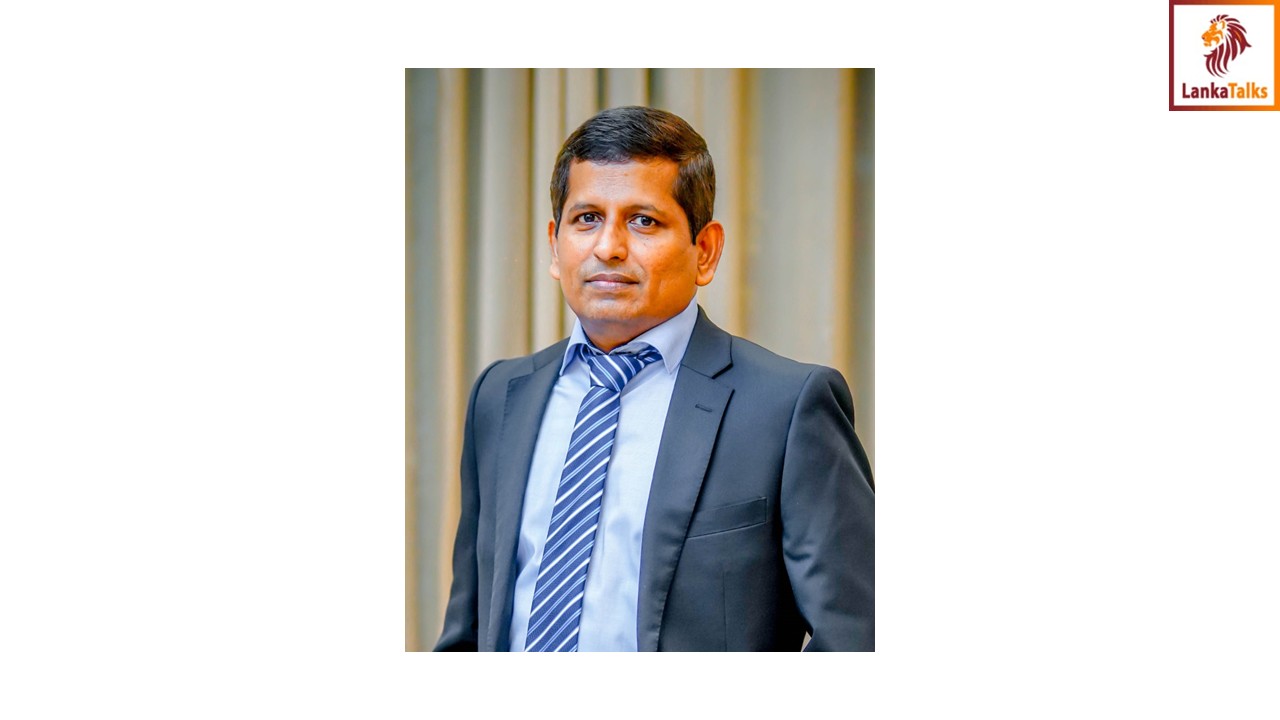
 A.R.B.J Rajapaksha
A.R.B.J Rajapaksha
